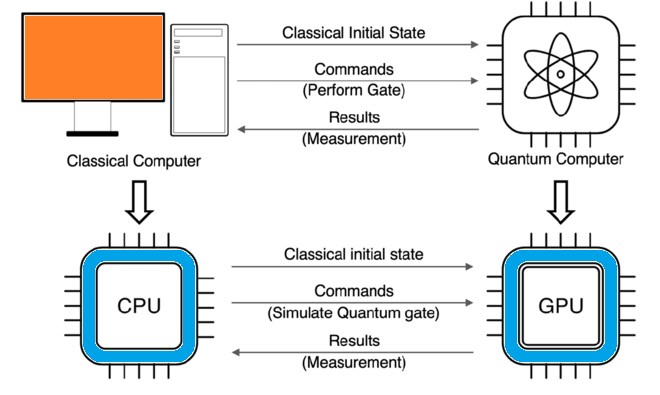Classical vs. Quantum Computing: Differences?
Quantum computing and classical computing represent fundamentally different approaches to information processing. While classical computers rely on bits, which can represent either a 0 or a 1, quantum computers utilize qubits, which can exist in multiple states simultaneously due to a phenomenon called superposition. This allows quantum computers to process information in a fundamentally different and more powerful way.

One of the key advantages of quantum computing lies in its ability to solve certain problems exponentially faster than classical computers. This is achieved through the combined effects of superposition and another quantum phenomenon called entanglement. Entanglement allows qubits to be linked together in such a way that the state of one qubit instantly influences the state of another, regardless of the distance between them. These unique properties enable quantum computers to tackle complex challenges in fields such as drug discovery, materials science, and cryptography.
Classical Computing
Classical computing is the traditional approach to computing, which is based on binary logic.
Here are its key components:
- Bits:The smallest unit of data in a classical computer is a bit, which can represent either a 0 or a 1. All complex data and instructions are ultimately broken down into these binary digits.
- Transistors:These are the building blocks of classical computers, acting as tiny switches that can turn on (1) or off (0).
- Deterministic Nature:Classical computers operate in a deterministic manner, meaning their operations follow a strict set of rules and produce a predictable outcome.
- Von Neumann Architecture:This foundational architecture separates the computer’s memory from its processing unit, which sequentially fetches, decodes, and executes instructions.
Quantum Computing
Quantum computing leverages the principles of quantum mechanics to perform computations in fundamentally different ways. Here are its defining features:
- Qubits:Quantum bits or qubits are the smallest unit of data in a quantum computer. Unlike classical bits, qubits can be in a state of 0, 1, or both simultaneously through a concept called superposition.
- Superposition:This principle allows qubits to represent and process multiple possibilities at once, vastly increasing computational potential.
- Entanglement:This quantum phenomenon allows qubits that are entangled to remain connected such that the state of one qubit directly impacts the state of another, no matter the distance between them.
- Quantum Gates:These are analogous to classical logic gates but operate on qubits, enabling complex operations through quantum mechanics.
- Parallelism:Quantum computers can perform many computations simultaneously due to superposition, providing a significant speed advantage for certain types of problems.
Key Differences
Here are some of the fundamental differences between classical and quantum computing:

Applications and Strengths
Classical Computers
Best suited for everyday tasks such as word processing, internet browsing, running business applications, and gaming. They excel in environments where deterministic outcomes and exact calculations are essential.
Quantum Computers
Excel in solving complex problems involving large datasets and intricate computations, such as cryptography, optimization problems, quantum simulations in pharma, energy, and materials science, and machine learning.
Current State and Future Prospects
- Classical Computers:Remain the backbone of modern computing, continually advancing with new technologies like cloud computing, AI, and edge computing.
- Quantum Computers:Still in the development stage, particularly the NISQ (Noisy Intermediate-Scale Quantum) era. They promise to revolutionize industries once practical, scalable, and error-free quantum systems are developed.
While still in its early stages of development, quantum computing holds immense potential to transform various industries and scientific disciplines. Researchers are actively working on building larger and more stable quantum computers, developing new quantum algorithms, and exploring potential applications. Although significant challenges remain, such as maintaining the delicate quantum states of qubits and minimizing errors, the progress made in recent years has been remarkable
The potential impact of quantum computing is far-reaching. It could revolutionize fields like medicine by enabling the discovery of new drugs and treatments for diseases, accelerate materials science by designing novel materials with enhanced properties, and enhance cybersecurity by developing unbreakable encryption methods. Moreover, quantum computing could unlock new frontiers in artificial intelligence, enabling the development of more powerful and efficient machine learning algorithms.
Conclusion
While classical computers continue to advance and excel in a wide range of applications, quantum computing is poised to address challenges that are currently beyond the reach of classical systems. Each type offers unique strengths, and their combined progression will shape the future of technology.